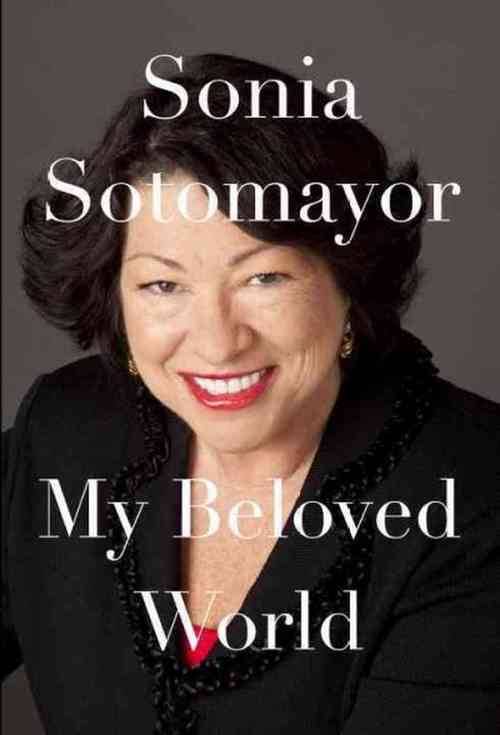
My Beloved World by Supreme Court Justice Sonia Sotomayor is a memoir that captures her experiences as a child through her appointment as a U.S. District Court judge.
Who would think a black girl from the Connecticut suburbs would have so much in common with a Puerto Rican girl from the Bronx?
From her upbringing in the neighborhood where I spent many days at my grandfather’s house, to her eye-opening journey into the world of the elite — there was so much I connected to in her story. Though there were over 30 years between our college experiences, it was comforting to know she shared many of the insecurities I dealt with as a minority and a women trying to find my path. Her honest admissions of doubt and good fortune, even after having achieved so many accolades in her life, provide great hope that with a strong support system and hard work, anything is possible.
It is by no means a page-turner (at times painstakingly layered), but it is worth your patience to fully understand how remarkable her story is. If the above doesn’t convince you to read the book, check out some of my favorite excerpts below. (If that still doesn’t convince you, at least watch her interview from Oprah’s Next Chapter.)
On inspiration:
“When a young person, even a gifted one, grows up without proximate living examples of what she may aspire to become—whether lawyer, scientist, artist, or leader in any realm—her goal remains abstract. Such models as appear in books or on the news, however inspiring or revered, are ultimately too remote to be real, let alone influential. But a role model in the flesh provides more than an inspiration; his or her very existence is confirmation of possibilities one may have every reason to doubt saying, ‘Yes, someone like me can do this.’” (178)
On facing new challenges:
“The first year that I face the challenges of any new environment has always been a time of fevered insecurity, a reflexive terror that I’ll fall flat on my face. In this self-imposed probationary period, I work with compulsive intensity and single-mindedness until I gradually feel more confident… I have gone through this same kind of transition since becoming a judge, first on the federal district court, then on the appeals court, and finally on the Supreme Court.” (144)
On affirmative action critics:
“There were vultures circling, ready to dive when we stumbled. The pressure to succeed was relentless, even if self-imposed out of fear and insecurity. For we all felt that if we did fail, we would be proving the critics right, and the doors that had opened just a crack to let us in would be slammed shut again.” (145)
On college diversity:
“The dynamism of any diverse community depends not only on the diversity itself but on promoting a sense of belonging among those who formerly would have been considered and felt themselves outsiders. The greater purpose of these groups had not been self-exile or special pleading. It has been to foster a connection between the old Princeton and the new, a mutual acceptance without which the body as a whole could not thrive or evolve.” (163)
On self-segregation:
“I would warn any minority student today against the temptations of self-segregation: take support and comfort from your own group as you can, but don’t hide within it.” (149)
On minority support:
“The typical undergraduate had been guided to Princeton by relatives, by prep school guidance counselors, or else by teachers savvy about the system. Minority kids, however, had no one but their few predecessors: the first to scale the ivy-covered wall against the odds, just one step ahead ourselves, we would hold the ladder steady for the next kid with more talent than opportunity. The blacks, Latinos, and Asians at Princeton went back to their respective high schools, met with guidance counselors, and recruited promising students they knew personally. Then, every time a minority application landed in the pile of potential admissions, they’d reach out to make the applicant feel welcome or at lease a little less intimidated.” (146)
On her U.S. District Court judge interview preparation:
“…although wisdom is built on life experiences, the mere accumulation of years guarantees nothing.” (288)
Also see: Of The People: Sonia Sotomayor’s Amazing Rise | NPR Book Review